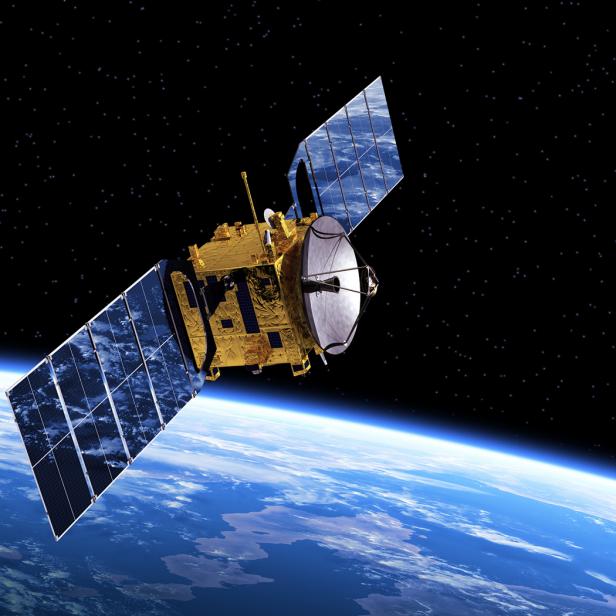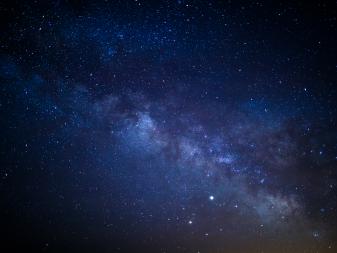
NASA
The Cost of Global Satellite Internet: Worse Astronomy

A few billionare-backed companies have ambitious goals: launching tens of thousands of communication satellites to provide global high-speed internet access. Elon Musk’s StarLink, Jeff Bezos’ Project Kuiper, One Web, GuoWang, and more are all competing for this lucrative market. In less than a decade, we can expect over 50,000 new satellites to encircle the Earth. That’s about ten times more than are currently active.
Global high-speed internet access is largely a good thing, especially for people in remote or developing areas with otherwise poor infrastructure.
But (and you knew there was going to be a “but) there is a downside. All those satellites carry reflective solar panels. Which makes them bright and a nuisance for astronomy.
Let’s say you’re an astronomer. You’ve just invested an enormous amount of money developing a gigantic, world-class telescope. You begin science operations and take photograph after photograph of the night sky. Prior to the arrival of these “mega-constellations”, you might occasionally see one or two satellite streaks in your images every once in a while. No biggie – you just toss those out. You’ve got plenty of good data to spare.

NASA
But after all these satellites launch and multiple companies are offering their global internet services? It makes almost every night a bad night.
While the satellites don’t affect all of astronomy, some observing programs are impacted more than others. High-altitude orbiting telescopes, for example, are much closer to the mega-constellations and hence more likely to get contaminated images. Telescopes that try to take as wide an image as possible will have their results junked up. The problem is especially worse in the early evening and just before dawn, when the angle between the satellites and the sun makes for maximum glare.

NASA
Unfortunately, there’s no simple, single way to have both global satellite internet and uncontaminated astronomy. Instead, we have to employ a variety of mitigation techniques:
- Beg and plead with the companies to alter the color and shape of their satellites, to lessen their brightness. Unfortunately the companies are under no legal obligation to do anything about it.
- Use computers to model where the satellites will be to make sure an observation program doesn’t cross paths. This will reduce the amount of contaminated data…because we’ll be taking less data. So less astronomy will get done every night.
- Remove the satellite trails from the images after the observation. This can be done, kind of, in a vague but not very satisfying way.
So what do we do about this? If we want to preserve the practice of astronomy – which is by and large funded by public government programs – then we need to have major discussions now, before even more satellites go up. If we even wait a few years, then it will essentially be too late. Maybe we as a society are willing to have slightly sub-optimal astronomy observing programs in exchange for the benefits of global internet access. Maybe not. But until we start talking about it, we can’t ever make up our minds.
Dive Deeper into the Cosmos
Journey Through the Cosmos in an All-New Season of How the Universe Works
Watch episodes on Science Channel and stream on discovery+.




















